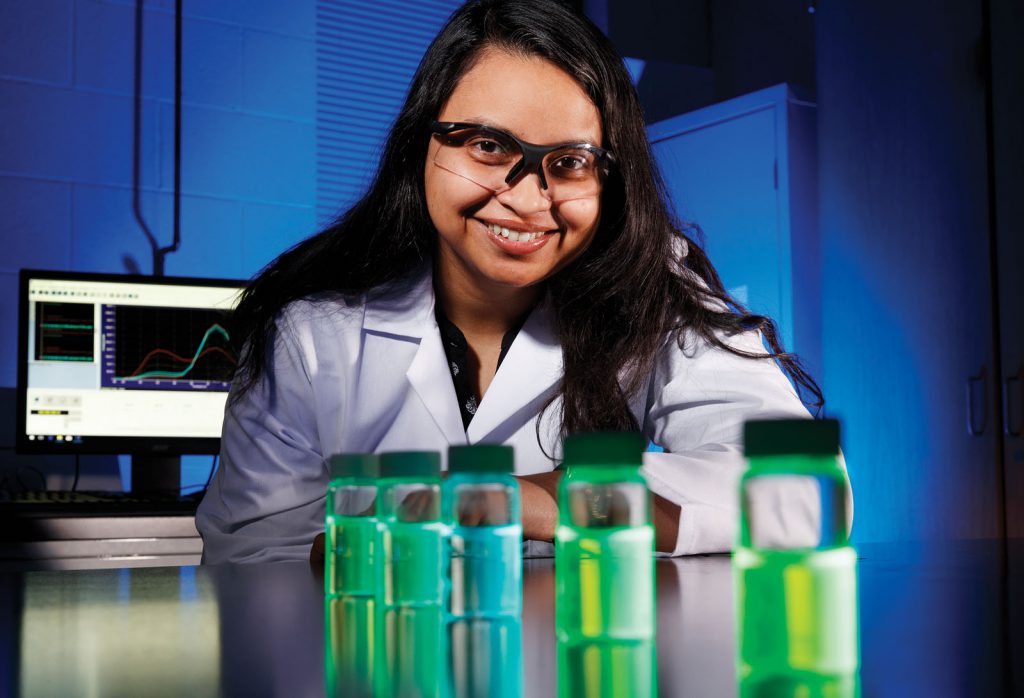Cranking Up Fuel Cell Efficiency
Cars powered by hydrogen-based fuel cells have been environmentally friendly options for several years in California. But their hefty price tags are far less friendly, curtailing widespread adoption.
Nebraska engineer Shudipto Dishari aims to both reduce fuel cell costs and improve energy efficiency. She earned a five-year, nearly $600,000 Faculty Early Career Development Program award from the National Science Foundation, the prestigious award given to outstanding pre-tenure faculty.

“The fuel cell is a pretty cool technology. It produces electricity without creating harmful gases … so it will help us reduce the global carbon footprint,” said Dishari, assistant professor of chemical and biomolecular engineering.
Hydrogen fuel cells generate electricity through a chemical reaction between hydrogen and oxygen, producing water and the electrons used to power, say, a car engine. Dishari studies proton exchange membrane fuel cells, or PEMFCs. In addition to cars, the green technology powers everything from warehouse forklifts to large data centers to space shuttles. Applications continue to expand. But PEMFCs conduct charged particles poorly.
Dishari seeks to better understand how the system works and design new materials that improve conductivity and cost less.
Her research also will improve the understanding of other energy conversion and storage device systems, such as lithium batteries.
+ Additional content for Cranking Up Fuel Cell Efficiency
Boosting fuel cells' green power is aim of Dishari's CAREER project